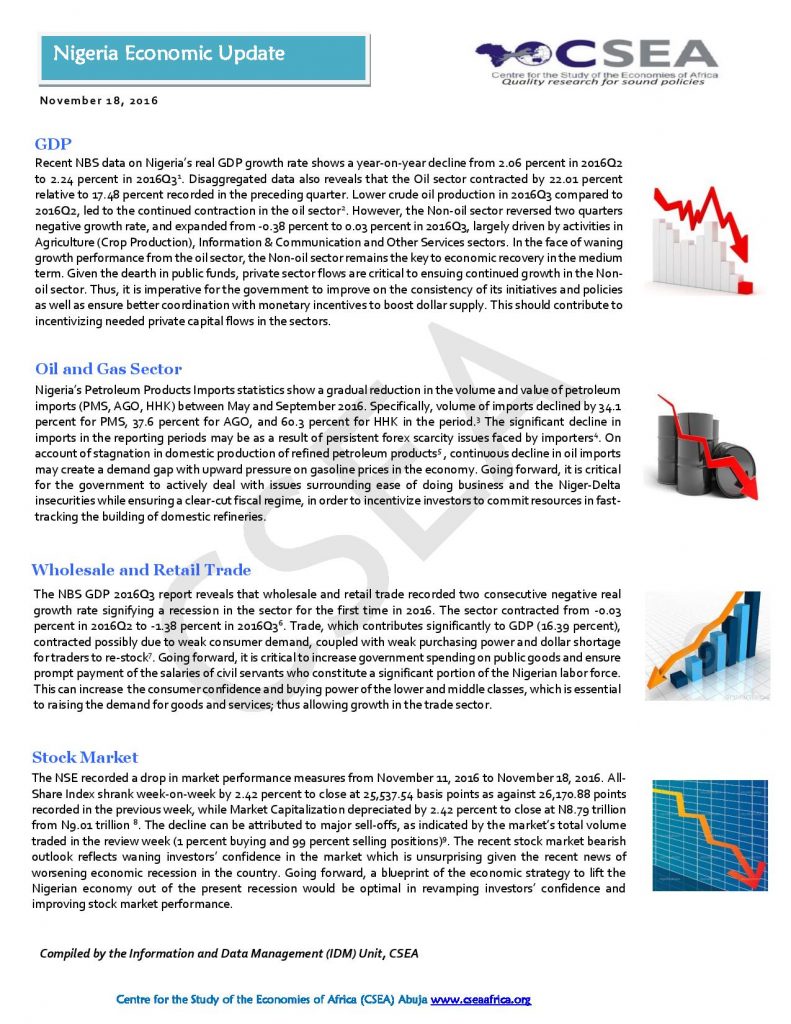Macroeconomic Report & Economic Updates

November 28, 2016
Nigeria Economic Update (Issue 49)
Nigerias
Petroleum Products Imports statistics show a gradual reduction in the volume
and value of petroleum imports (PMS, AGO, HHK) between May and September 2016. Specifically,
volume of imports declined by 34.1 percent for PMS, 37.6 percent for AGO, and
60.3 percent for HHK in the period.The significant decline in
imports in the reporting periods may be as a result of persistent forex
scarcity issues faced by importers. On account of stagnation in
domestic production of refined petroleum products, continuous
decline in oil imports may create a demand gap with upward pressure on gasoline
prices in the economy.
